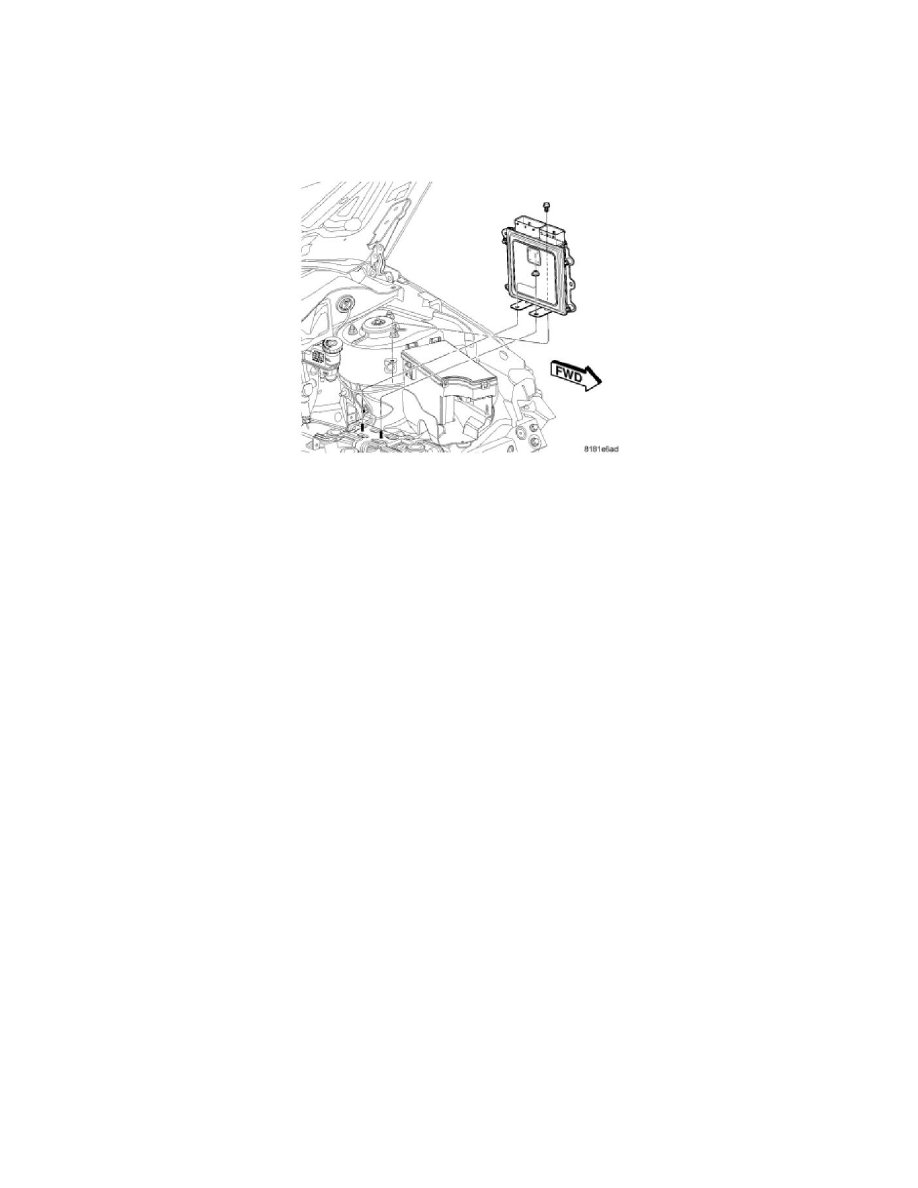Caliber SRT-4 L4-2.4L Turbo VIN F (2007)

Engine Control Module: Description and Operation
Operation
Powertrain Control Module
POWERTRAIN CONTROL MODULE
The PCM receives input signals from various switches and sensors that are referred to as PCM Inputs. Based on these inputs, the PCM adjusts various
engine and vehicle operations through devices that are referred to as PCM Outputs.
NOTE: PCM Inputs:
-
Air Conditioning Controls
-
Battery Voltage
-
Brake Switch
-
Camshaft Position Sensor
-
Clutch Upstop Switch
-
Clutch Interlock
-
Crankshaft Position Sensor
-
Engine Coolant Temperature Sensor
-
Fuel Level Sensor (Bus message)
-
Ignition Switch
-
Intake Air Temperature Sensor
-
Knock Sensor
-
Evaporative System Integrity Monitor
-
Manifold Absolute Pressure (MAP) Sensor
-
Oil Pressure Switch
-
Oxygen Sensors
-
Power Steering Pressure Switch
-
Speed Control Switches
-
Vehicle Speed Sensor (MTX-equipped models)
NOTE: PCM Outputs:
-
Air Conditioning Clutch Relay
-
Charging Indicator Lamp (Bus Message)
-
Proportional Purge Solenoid
-
Fuel Injectors
-
Generator Field
-
Ignition Coils
-
Malfunction Indicator (Check Engine) Lamp (Bus Message)
-
Manifold Flow Valve
-
Oxygen Sensors Heater Controls
-
Variable Valve Timing
-
Vehicle Speed (Manual Transmission)
Based on inputs it receives, the PCM adjusts fuel injector pulse width, idle speed, ignition spark advance, ignition coil dwell and EVAP canister purge
operation. The PCM also determines the appropriate transmission shift schedule and shift points, depending on the present operating conditions and
driver demand. The PCM regulates the cooling fan, air conditioning and speed control systems. The PCM changes generator charge rate by adjusting the
